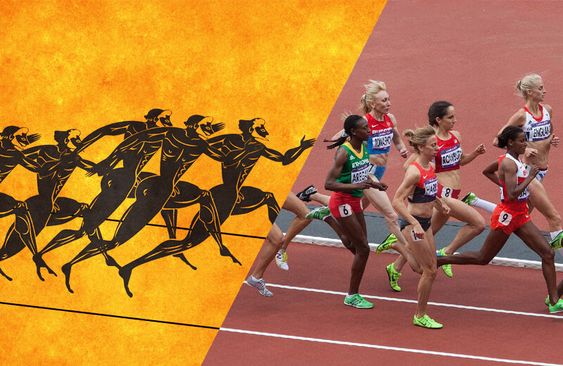The modern Olympic Games, a prestigious international sporting event that epitomizes the competitive spirit, camaraderie, and unity among athletes and nations worldwide, have come a long way since their ancient Greek beginnings.
The ancient Olympic Games were primarily a series of athletic competitions held in Olympia, Greece, from 776 BC to 393 AD. These games were deeply rooted in religion and mythology and paid homage to the Greek god Zeus. More than just a mere sporting event, the ancient Olympics played a significant role in cultivating a common Greek identity. The competitions showcased physical prowess and rewarded those who excelled in various athletic pursuits.
In contrast, the modern Olympic Games owe their inception to Baron Pierre de Coubertin. Inspired by the ancient Olympics and driven by an unyielding devotion to enriching global society through sport, Coubertin envisioned recreating a similar event tailored for the modern era.
The pursuit of such ambition began when Coubertin founded the International Olympic Committee (IOC) in 1894. With its establishment, he set forth a fascinating journey that would leave an indelible mark on the tapestry of world history. The first official modern Olympic Games took place in Athens on April 6, 1896 – energetically rekindling the spirit of their ancient predecessors.
Contrary to the past practices entrenched in mythology and religious beliefs, the modern Olympics emerged as secular events aiming to promote peace and international fellowship. One of Coubertin’s primary intentions for devising this extraordinary forum was to facilitate global unity and foment understanding among diverse nations.
Over time, several notable developments have further enriched this sporting extravaganza. The introduction of Winter Olympic Games dedicated to winter sports in 1924 bolstered its appeal. Moreover, other iterations like Paralympics specifically designed for disabled athletes signifies its growing inclusivity.
Additionally, to strengthen the Olympic movement and garner public interest, several trademarks and symbols – such as the famous five interlocking rings – have become synonymous with the emblematic spirit of the Games.
The modern Olympic Games have undoubtedly evolved splendidly since their conception. They undoubtedly serve as a considerable catalyst for fostering sportsmanship, cooperation, and understanding among divergent cultures. Leaving an indelible footprint on world history, the modern Olympics remain loyal to Baron Pierre de Coubertin’s unwavering commitment to global unity – a legacy that will persevere for generations to come.





